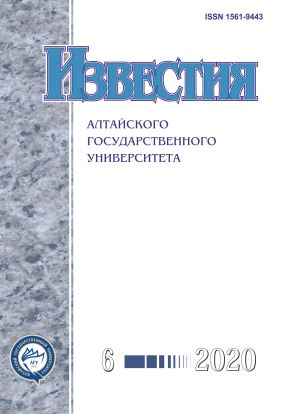Museification of the Traumatic Past in South Africa: Competing Narratives
УДК 94(6-13):069 ББК 63.3(67)+79.19
Abstract
The article summarizes the results of a case study undertaken with the help of non-participant observation in January 2020 in South Africa. Three memorial sites have been observed: the Apartheid Museum, the Liliesleaf Farm Museum and the Voortrekker Monument. Data collection and analysis have allowed identifying the ideological and evaluative content of the expositions of museums that serve the purpose of commemorating the traumatic past of South Africa, and tracing their relationship with other commemorative narratives and the evolution of historical policy in the 20th -21st centuries. The authors draw parallels with some elements of Soviet domestic and, in particular, national policy, which, without declaring segregation goals directly, engendered similar consequences, and became evaluated as encouraging ethnic particularism in the post-Soviet period. The article concludes that in all cases in question, representations of collective trauma and armed struggle fulfill a legitimizing function, justifying the rights of ethnic and racial groups to the territory and nation building. In general, museum displays and memorials dedicated to apartheid and commemorating events related to state building represent South African society as deeply divided.
Downloads
Metrics
References
Sodaro A. Exhibiting Atrocity: Memorial Museums and the Politics of Past Violence. New Brunswick, 2018.
Содаро Э. Мемориальные музеи: возникновение новой формы // Неприкосновенный запас. 2020. № 128. URL: http://www.intelros.ru/readroom/nz/128-2020/41267-memorialnye-muzei-vozniknovenie-novoy-formy.html.
Ассман А. Длинная тень прошлого: мемориальная культура и историческая политика. М., 2014.
Александер Дж. Культурная травма и коллективная идентичность // Социологический журнал. 2012. № 3.
Айерман Р. Социальная теория и травма // Социологическое обозрение. 2013. Т. 12, № 1.
Зерубавель Я. Динамика коллективной памяти // Империя и нация в зеркале исторической памяти. М., 2011.
Филатова И.И., Давидсон А.Б. Какого цвета «южноафриканское чудо»? Национально-демократическая революция и национальные отношения в ЮАР в конце XX — начале XXI в. // Pax Africana: континент и диаспора в поисках себя / отв. ред. А.Б. Давидсон. М., 2009.
Филатова И.И. Печальный конец «южноафриканского чуда». «Расовая трансформация» в ЮАР // Культурная сложность современных наций / отв. ред. В.А. Тишков, Е.И. Филиппова. М., 2016.
Городнов В.П. Апартхейд — тупиковый исторический эксперимент // Pax Africana: континент и диаспора в поисках себя / отв. ред. А.Б. Давидсон. М., 2009.
Филатова И.И. Южноафриканская история - поле идеологических сражений // История - поле сражений. М., 2015.
Ассман А. Забвение истории - одержимость историей. М., 2019.
Izvestiya of Altai State University is a golden publisher, as we allow self-archiving, but most importantly we are fully transparent about your rights.
Authors may present and discuss their findings ahead of publication: at biological or scientific conferences, on preprint servers, in public databases, and in blogs, wikis, tweets, and other informal communication channels.
Izvestiya of Altai State University allows authors to deposit manuscripts (currently under review or those for intended submission to Izvestiya of Altai State University) in non-commercial, pre-print servers such as ArXiv.
Authors who publish with this journal agree to the following terms:
- Authors retain copyright and grant the journal right of first publication with the work simultaneously licensed under a Creative Commons Attribution License (CC BY 4.0) that allows others to share the work with an acknowledgement of the work's authorship and initial publication in this journal.
- Authors are able to enter into separate, additional contractual arrangements for the non-exclusive distribution of the journal's published version of the work (e.g., post it to an institutional repository or publish it in a book), with an acknowledgement of its initial publication in this journal.
- Authors are permitted and encouraged to post their work online (e.g., in institutional repositories or on their website) prior to and during the submission process, as it can lead to productive exchanges, as well as earlier and greater citation of published work (See The Effect of Open Access).








